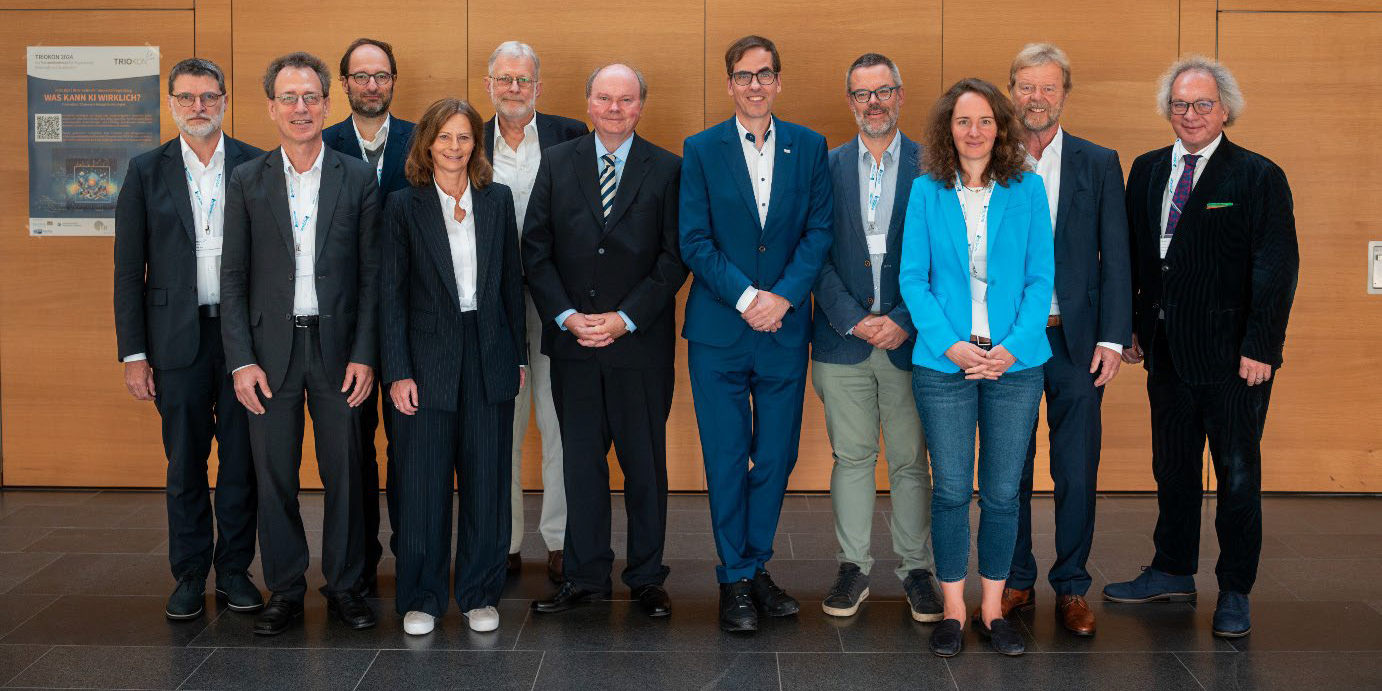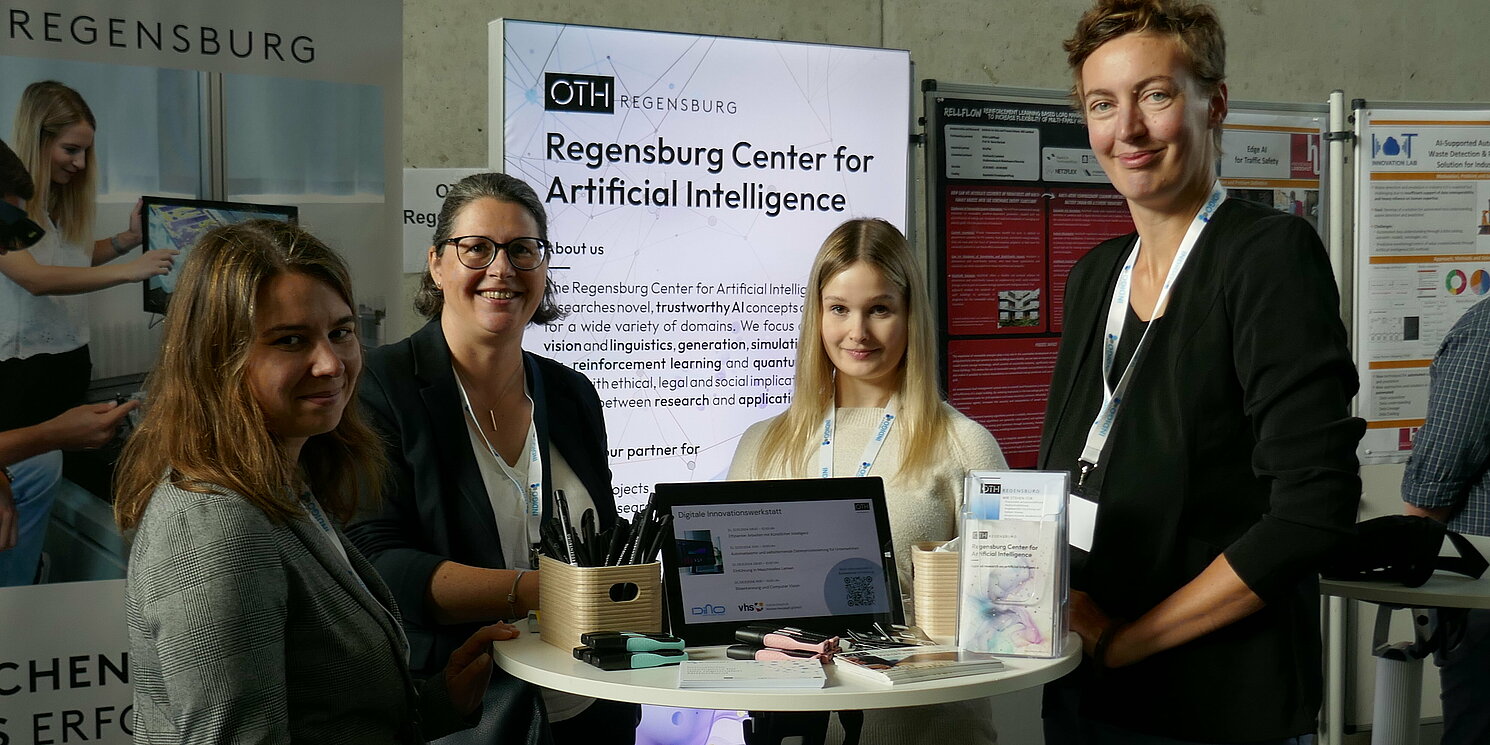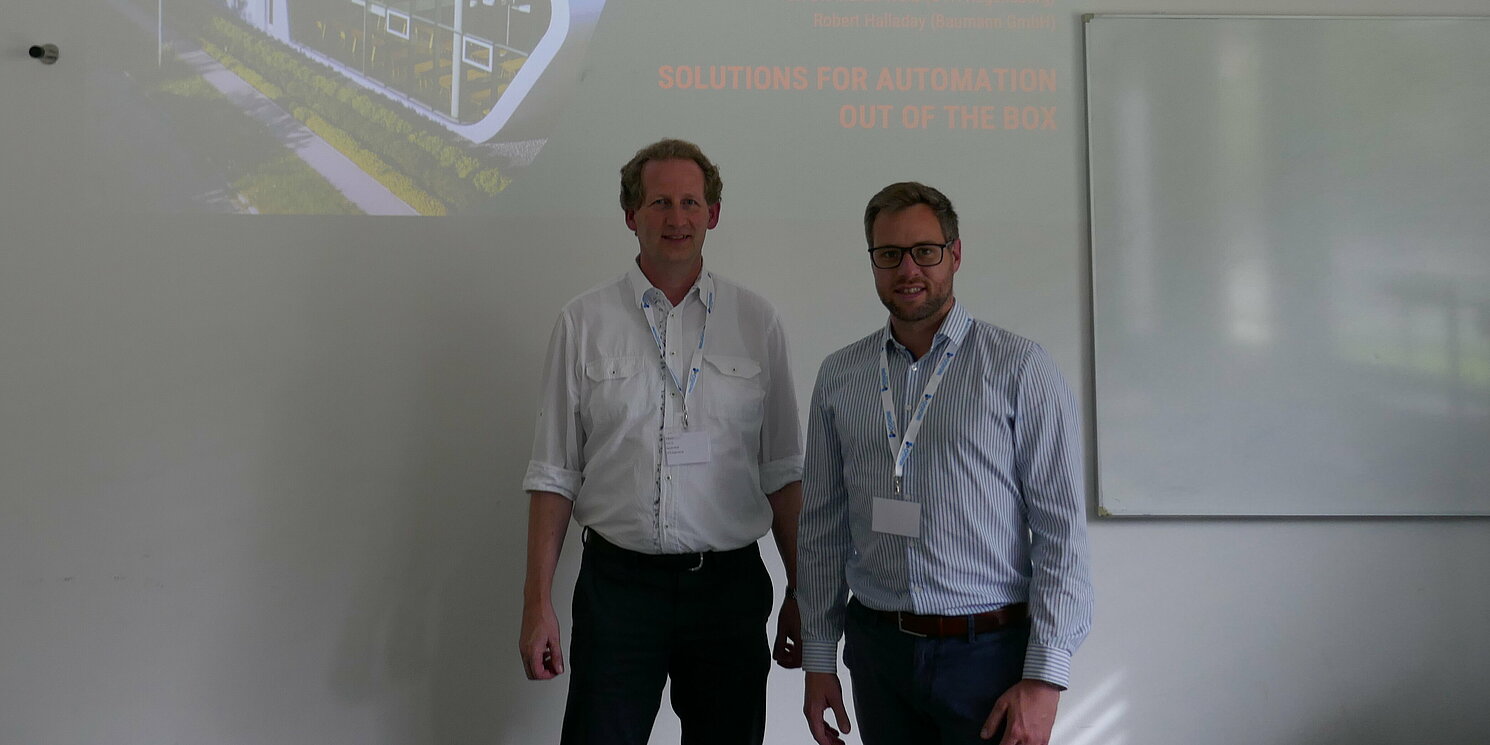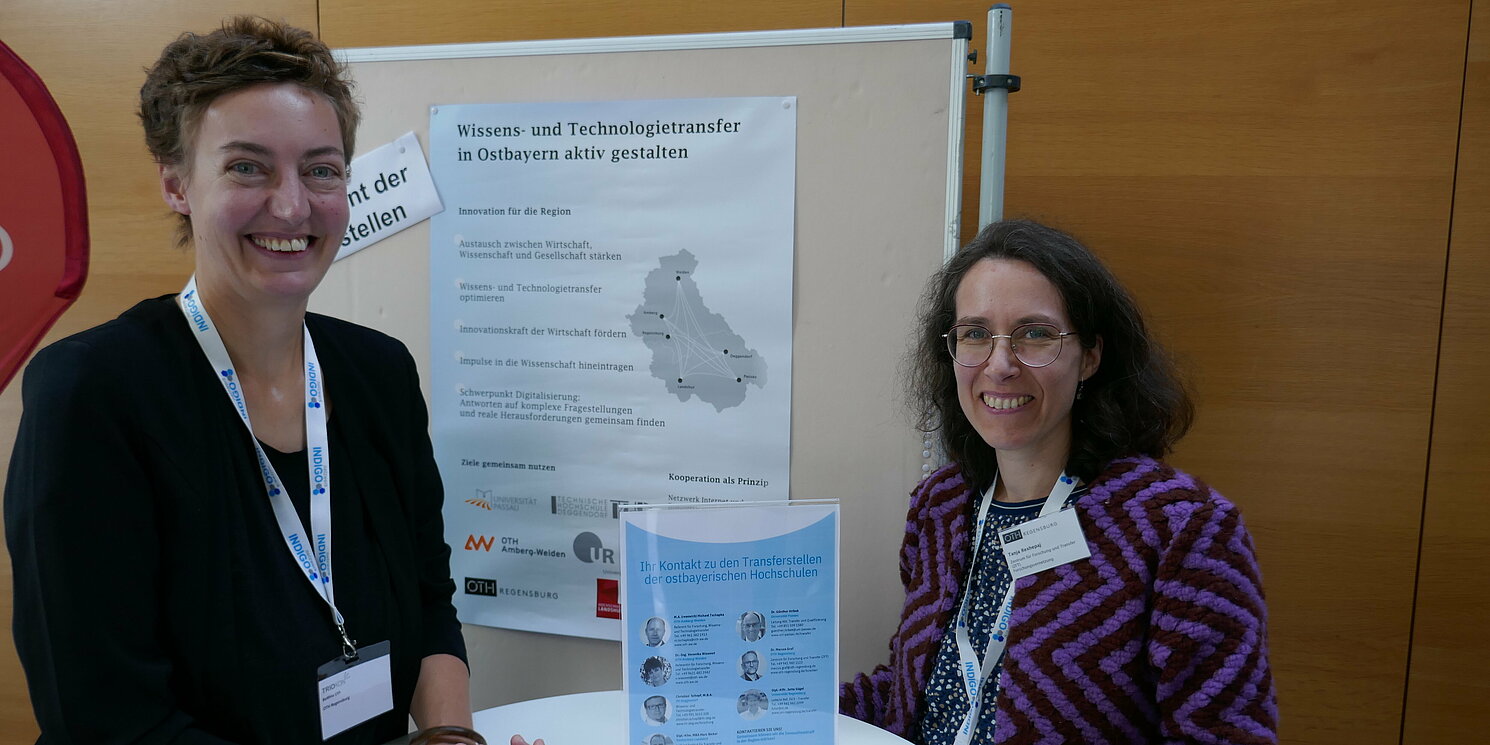The TRIOKON transfer conference took place for the sixth time. The event on 25 September 2024 in the Vielberth Building at the University of Regensburg focused not only on technological developments in the field of artificial intelligence (AI), but also on the associated challenges and limitations. The participants from science, business and society took the opportunity to exchange ideas during the conference organised by the INDIGO network and the University of Regensburg. The INDIGO network used TRIOKON 2024 to celebrate its 10th anniversary. INDIGO stands for Internet and Digitalisation East Bavaria and is based on the collaboration between the six East Bavarian universities OTH Regensburg, OTH Amberg-Weiden, TH Deggendorf, Landshut University of Applied Sciences, Passau University and Regensburg University.
Since 2014, the network has been promoting cooperation between the six East Bavarian universities in the field of basic and applied research. Prof. Dr Susanne Leist, Vice President for Digitalisation, Networks and Transfer at the University of Regensburg, emphasised the benefits of the cooperation in her welcoming address. In his welcoming address, Prof. Dr Tomas Sauer, spokesperson for the INDIGO steering committee, emphasised the relevance of the network for Eastern Bavaria and outlined how the collaboration has strengthened the region as a science and business location in recent years. In a moderated discussion between Prof. Dr Burkhard Freitag and Prof. Dr Wolfgang Baier, both co-founders of the network and former presidents of two INDIGO member universities, the audience was once again given an overview of the history of the network and the many aspects of the long-standing cooperation. Former President of OTH Regensburg, Prof. Dr Baier, said: ‘In the university network, we have always benefited from the trusting cooperation, which has facilitated coordination and the establishment of processes. The personal dialogue between the university management teams has opened up many possible solutions and new ideas.’
‘What can AI really do?’
The contributions in the plenary session and the focus topic workshops were organised under the motto ‘What can AI really do?’. Questions about the practical applications of AI, its innovation potential and the limits and risks of these technologies were discussed. It became clear that artificial intelligence not only offers new opportunities for companies, but also poses challenges, particularly with regard to legal and security-related aspects. In his opening keynote, Prof Dr Stefan Schönig from the University of Regensburg explained how cyber security is ensured in manufacturing companies and how AI technologies can help to identify security gaps and implement proactive measures to comply with security standards.
In the following keynote speeches, Dr Elisabeth Moser gave an insight into the work of the NGO Space-Eye e.V., where AI methods support sea rescue activities, and Aris Tsakpinis from Amazon Web Services took a look at the current status of generative AI from the perspective of research and industry. At the end of the conference, the keynote speech by Bayernwerk AG rounded off the programme, with Jürgen Kandlbinder and Dr Benjamin Wehner looking at AI as an enabler of the energy transition and introducing the audience to various use cases of a grid operator. Another highlight was the panel discussion, in which representatives from industry and universities debated the potential and limitations of the use of artificial intelligence.
OTH Regensburg was represented in the focus topic workshops by Prof. Dr Martin Weiß, who presented a joint cooperation project on the topic of ‘Predictive maintenance in special machine construction’ together with Robert Halladay from Baumann GmbH.
Networking at the exhibition stands
The exhibition stands of the INDIGO member universities and other cooperation partners of the network offered the opportunity for networking among the conference participants. OTH Regensburg was represented here by the Regensburg Centre of Artificial Intelligence (RCAI), the ZAP.OTHR project and the Centre for Research and Transfer (ZFT).



